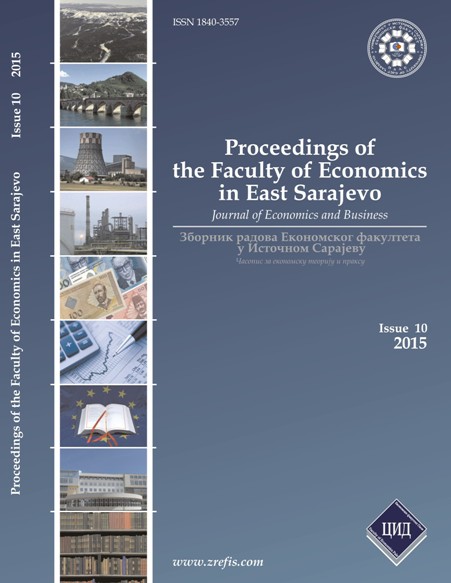RESOURCE EFFICIENCY IN MONTENEGRO - SCENARIOS FOR THE FUTURE
DOI:
https://doi.org/10.7251/ZREFIS1510011PAbstract
Resource efficiency means management and use of limited resources in a sustainable manner, whilst minimizing negative impact on environment. Sustainable management of resources assumes monitoring of whole process, from resources extraction, transport, transformation and consumption, to the disposal of waste. In plainer words, it means finding ways of producing more with fewer inputs and less impact and consuming differently, to limit the risks of scarcity or pollution. Moving towards a growth path which will have the dual benefit of stimulating the growth needed to provide jobs and wellbeing for its citizens and of ensuring that the quality of this growth leads to a sustainable future, will require the country to tackle these challenges and turn them into opportunities. Preparing the Montenegrin economy for this transformation in a timely, predictable and controlled manner, will enable it to further develop its wealth and wellbeing, whilst reducing the levels and impact of its resource use. Ensuring a sustainable development path in Montenegro would mean gradual transition towards achievement of European targets, competitiveness, permanent decoupling of economic growth from the use of resources and environmental impacts and keeping the promise to be an ecological state.
The research in this paper is a partial outcome of the UNDP project Resource Efficiency and Sustainable Human Development. The scenario of the future use of natural resources in Montenegro, presented in this paper, is a pioneering attempt to assess its resource productivity (RP), which may serve as a rough illustration of the degree of efficiency in the use of natural resources in the national economy. As such, they may serve as the basis for policy directions and for fostering discussion on this issue which is important for future socio-economic profile of Montenegro.

